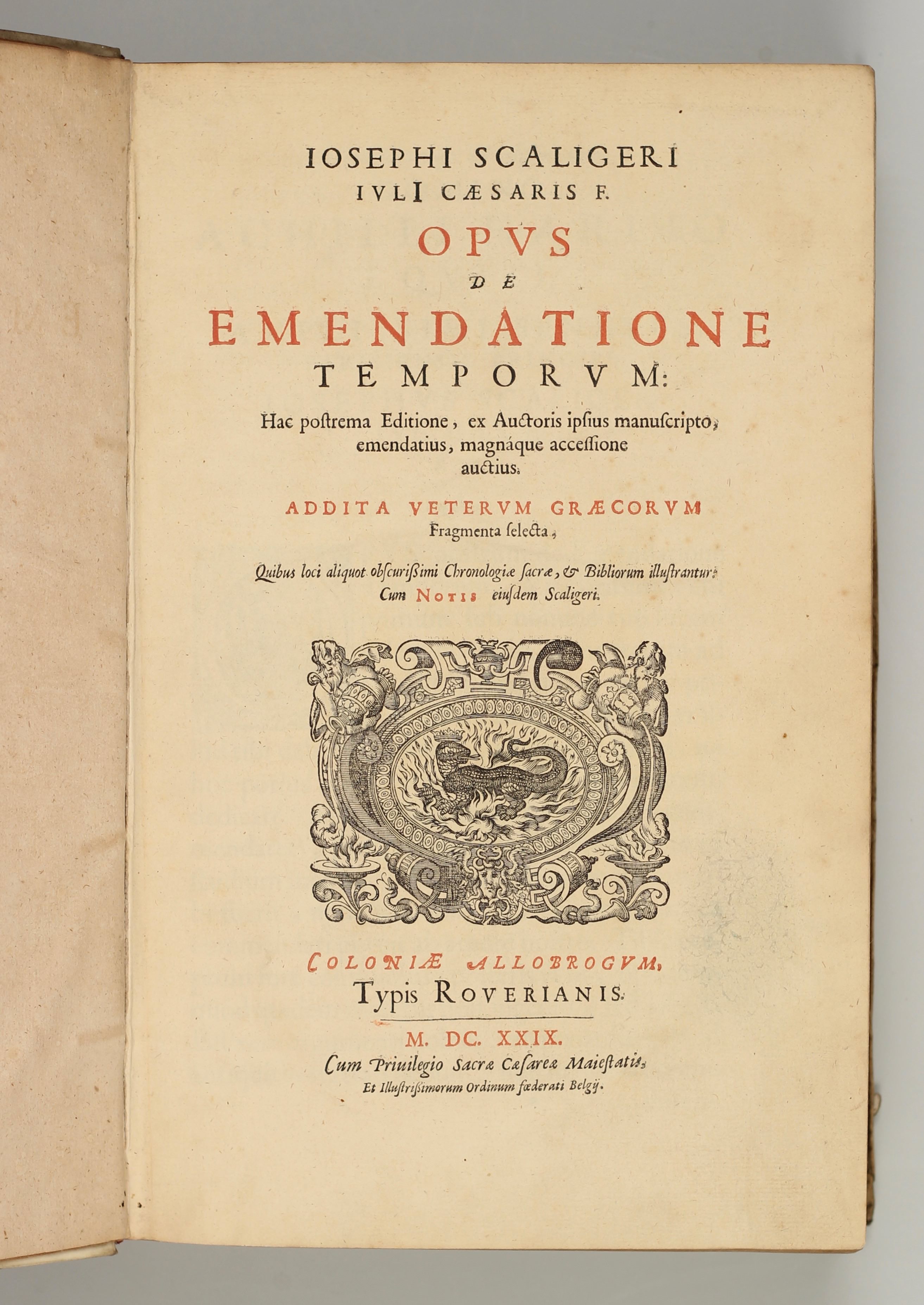Scaliger, Josephus Justus
Opus de emendatione temporum … — Geneva 1629
1.800 €Opus de emendatione temporum: Hac postrema editione, ex auctoris ipsius manuscripto, emendatius, magnaque accessione auctius. Addita veterum Graecorum fragmenta selecta, quibus loci aliquot obscurißimi chronologiae sacrae, & bibliorum illustrantur: cum notis eiusdem Scaligeri. — Coloniae Allobrogum, Typis Roverianis, M.DC.XXIX. [Geneva, Rovere, 1629].
Folio (344 x 226 mm). (6) leaves, LII pp., (2) leaves, 784 pp., (24) leaves, 59 pp. Title-page printed in red and black. Erased ownership-entry on title; modern ownership entry on fly-leaf. A number of quires slightly toned. No half-title. Contemporary vellum. Issue with the additional Et Illustrißimorum Ordinum Foederati Belgii below the usual Imperial privilege.
¶ PMM 98 (1583 edition): „Scaliger was the greatest scolar of his age, and has been described as ‚the father of modern criticism‘. His penetrating scholarship and powerful gift of analysis were magisterially demonstrated in his edition (1579) of one of the most difficult Latin texts, the Astronomica of Manilius, and this was a forerunner to his greatest work.
The De Emendatione Temporum revolutionized ancient chronology; it showed that ancient history was not restricted to that of the Greeks and Romans, but also involved that of the Persians, Babylonians and Egyptians, and that of the Jews, hitherto treated as ’sacred history‘, a subject apart. With incredible diligence Scaliger compared critically the surviving histories and chronicles of each civilization and evolved out of their several chronologies a continuous narrative in the light of the new understanding of the chalendar achieved by the Copernican system. When one considers the disorder, the isolated bits and pieces, which comprised ancient history at this date, Scaliger’s achievement in ‚A Correct System of Chronolog‘ towers above that of his contemporaries: it is difficult now to imagine how history could be written without an adequate and continuous chronology, based on Scaliger’s synchronistic principles …“


















